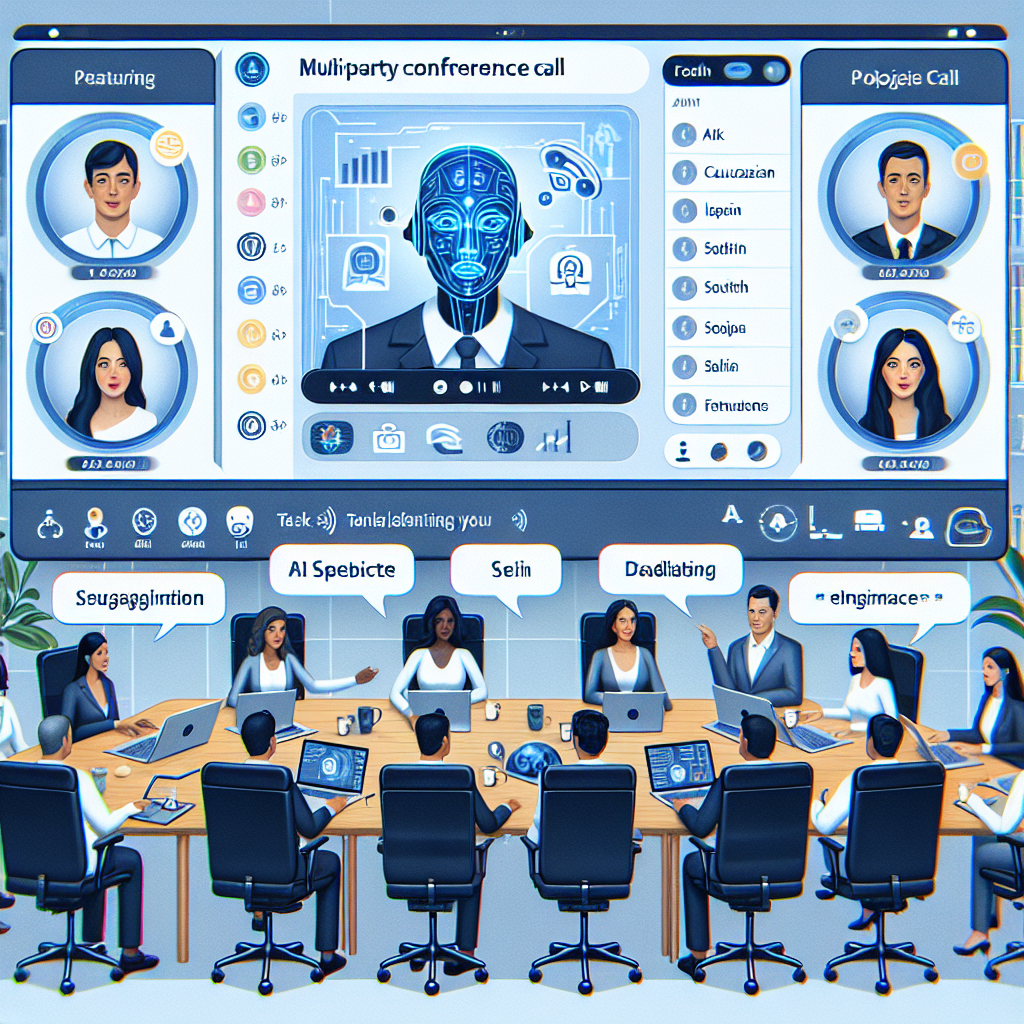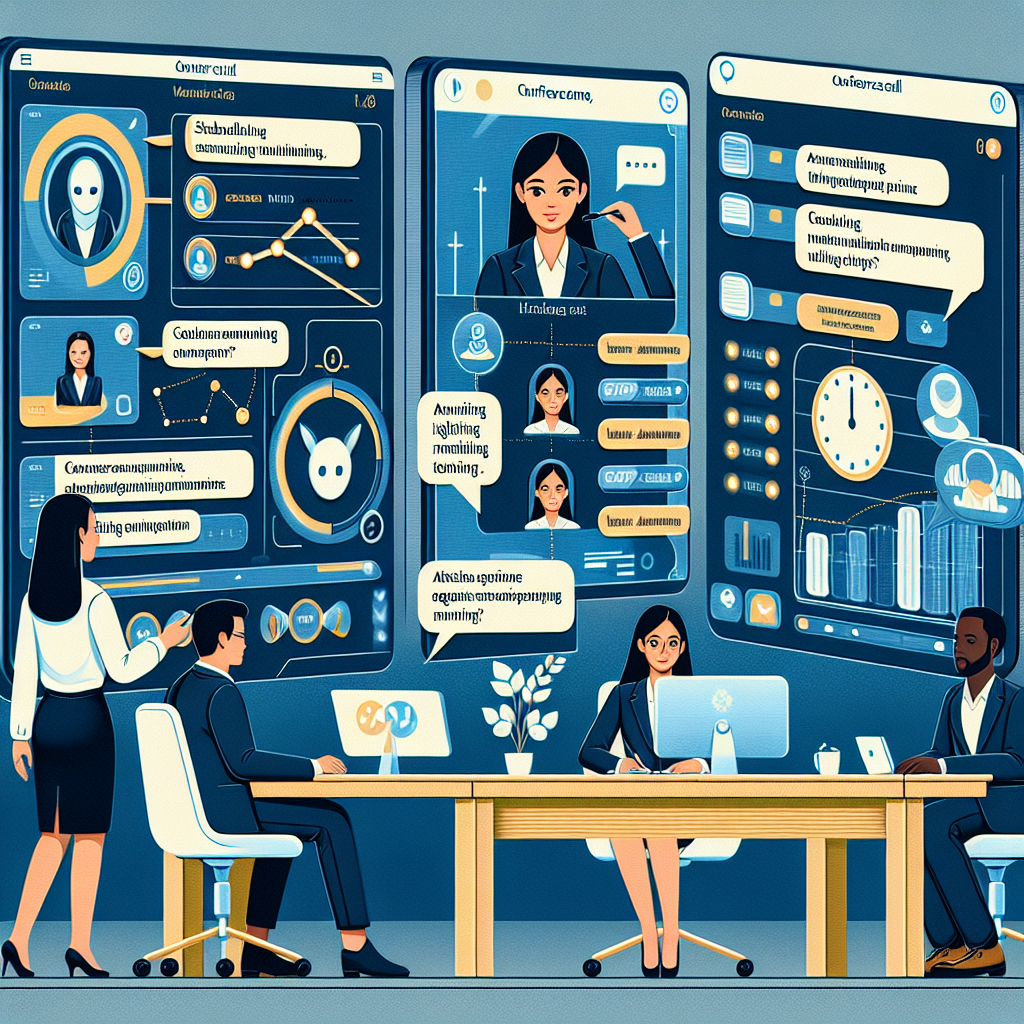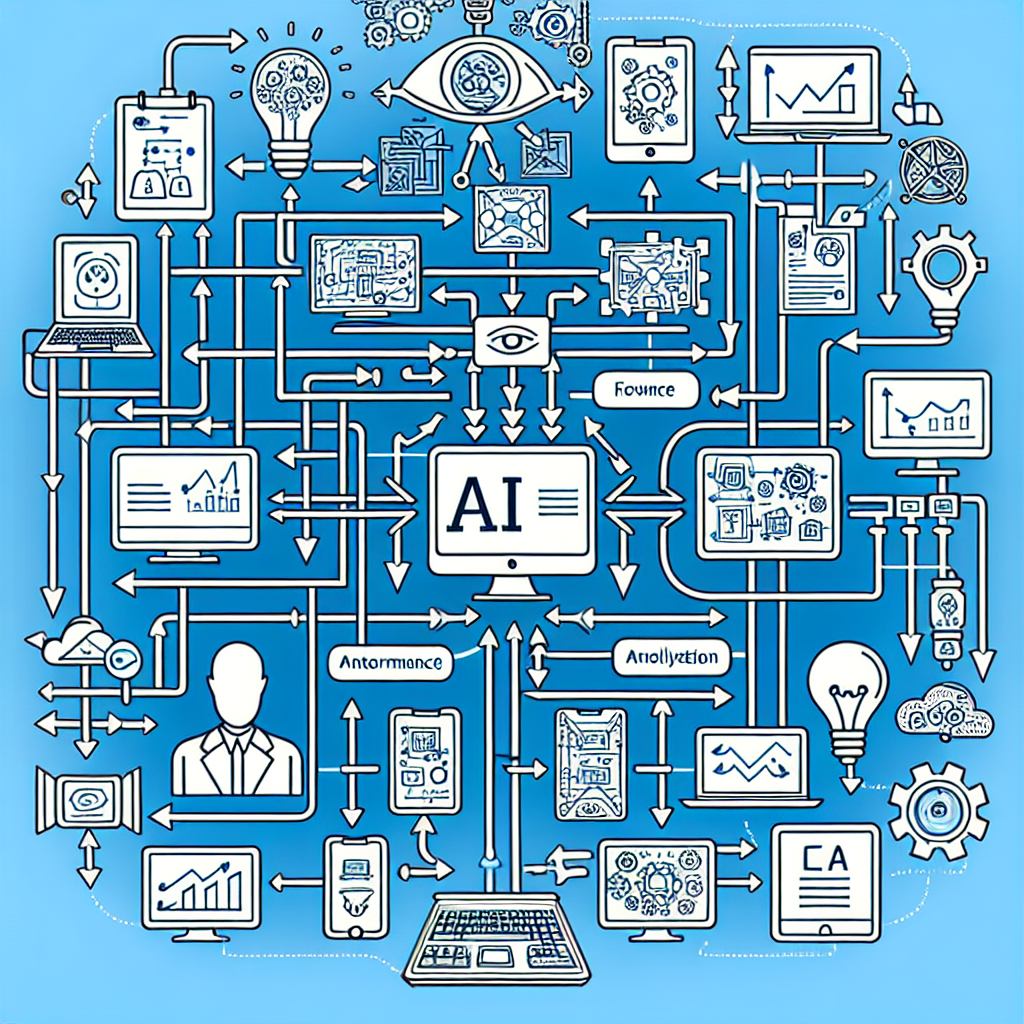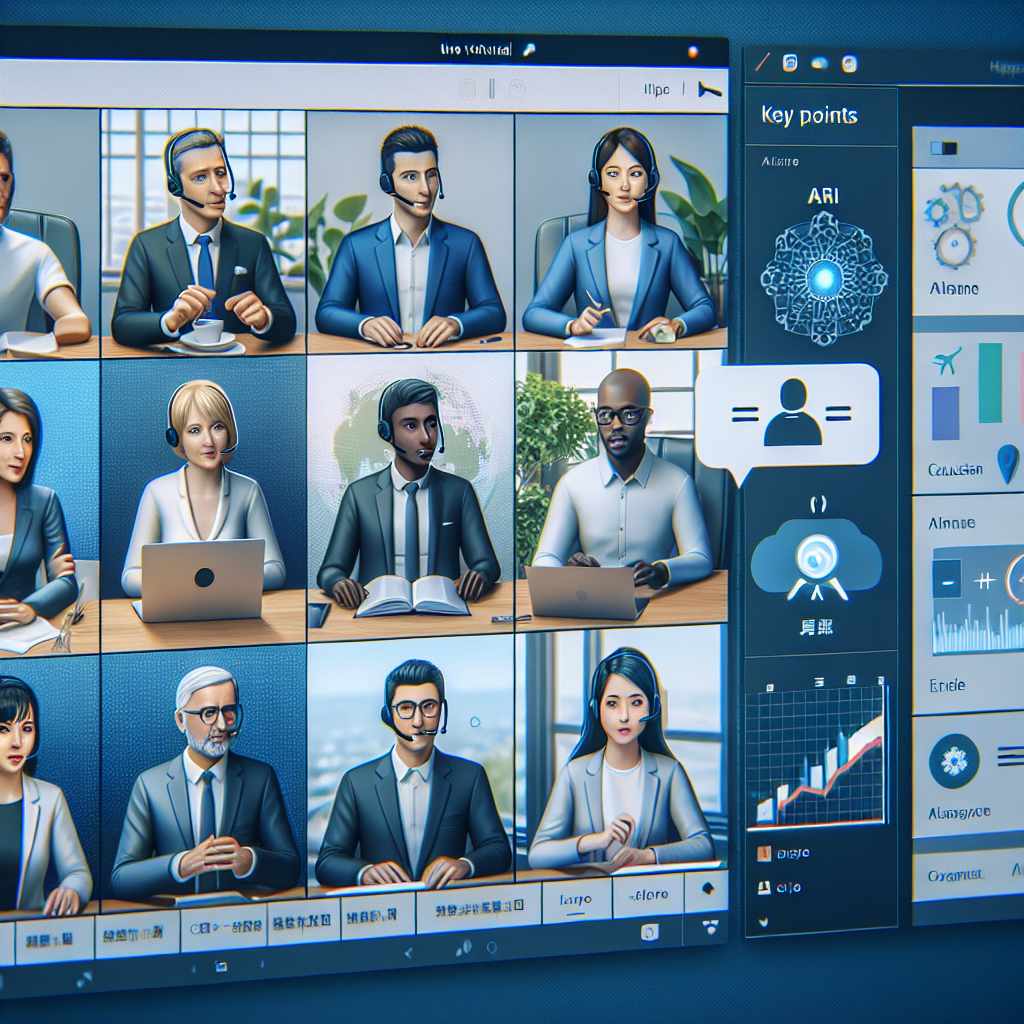
Multi-party conference calls and collaborations can be hectic to manage, often leading to confusion and reduced productivity. Artificial Intelligence (AI), however, is increasingly becoming a solution to these challenges, enhancing efficiency and effectiveness. Whether it's about managing attendees, streamlining communication, or transcribing conversations, AI is revolutionizing how we conduct conference calls.Read more here.

AI operates on advanced algorithms, creating a smart system that can effectively handle multiple users on a conference call. It does this by assigning each caller an identity, streamlining their contributions, and helping to avoid communication chaos. A notable form of this technology in use is the noise cancellation feature in Google Meet, which uses AI to minimize background noise, thus improving the quality of calls.
Beyond managing communication, AI aids in recording and transcription of calls. AI-powered transcription services automatically transcribe conference calls in real-time, making it easy to search, share, and reference conference calls later. Microsoft Teams, for instance, incorporates AI capabilities to provide a real-time transcription service. This particular use of AI not only caters to the needs of the hearing-impaired but also assists anyone who might have missed the meeting or needs to revisit the discussions.
A key element in the use of AI for conference calls is collaboration. AI can generate shared notes, help manage tasks, and even schedule follow-up meetings, fostering a culture of collaborative productivity. Learn more about AI in collaboration here.
In conclusion, the dynamic of multi-party conference calls is changing, with AI technology leading the charge. Through AI, businesses are able to enhance communication, improve productivity, and foster a healthy work culture across remote setups.
The advent of Artificial Intelligence (AI) has created a revolutionary impact on various aspects of the communication landscape, especially in the management of multi-party conference calls and collaborations. The introduction of AI-powered conference systems has transformed meeting dynamics, boosting productivity and collaboration considerably. Here, we will discuss the key features of these innovative systems.
Voice Recognition: AI-powered voice recognition technology proves to be a significant boon in conference calls. This feature is capable of identifying speakers based on their unique voice patterns, and it plays an essential role in offering a seamless conference experience. For more in-depth information, search this query - AI Voice Recognition in Conference Systems.
Real-time Transcription: Another noteworthy feature is real-time transcription, which significantly boosts accessibility and understanding during calls. With this technology, speech is converted to text almost instantly, allowing participants to catch up on missed points with ease. For a more detailed understanding of real-time transcription in AI, issue the following search - AI Real-Time Transcription.
Automatic Call Summarization: AI-powered conferencing systems also possess the outstanding capacity of generating automatic call summarization. This exceptional feature provides a concise summary of the entire conference, ensuring that all participants are well-informed about the discussions, even if they missed out on certain parts. For further reading, you can use this search - Automatic Call Summarization in AI.
In conclusion, AI has paved the way for a future where conference calls and collaborations are more efficient and less time-consuming. With features like voice recognition, real-time transcription, and automatic call summarization, AI-powered conference systems are set to redefine corporate communication and dynamics.
In today's dynamic business environment, seamless integration of technology has become crucial. AI conference systems are not an exception; they integrate flawlessly with various business applications to streamline workflows. In real terms, it means AI-driven conference systems can connect dynamically with CRM systems, project management software, and myriad other business-centric applications that help make your teamwork effectively and productively.
At the crux of successful business operations, lies the efficient use of AI to manage and coordinate multi-party conference calls. AI conference systems have the ability to sync with your project management software, assisting with meeting scheduling, reminders, or even automatically inviting participants based on project roles. In doing so, the AI ensures everyone who should be involved is involved, and no essential discussions fly below the radar.

Most notably, AI conference systems bring a substantial value to sales and customer relationships management by integrating with CRM systems. By linking AI conference systems with CRM, businesses can capture and document the key points of customer meetings, alongside providing customer-centric data that propels personalized sales tactics.
Thus, by weaving through the fabric of your existing business tools, AI conference systems make collaboration in multi-party conference calls more innate, efficient and productive by offering a cohesive and harmonized workspace.
The holistic integration of AI conference systems with business applications aligns with your evolving business needs, amplifying your team's capabilities while diminishing collaboration overload.
In conclusion, the value of AI in managing multi-party conference calls and collaborations is augmented by its ability to integrate seamlessly with business tools. By significantly reducing friction points and boosting synergy, AI-based conference systems are transforming the way businesses communicate internally and with customers.
As we delve into modern technological advancements, artificial intelligence (AI) continues to pave the way in transforming business operations. In the realm of multi-party conference calls and collaborations, the role of AI is particularly profound. This article will discuss two impressive case studies of major corporations that have harnessed the power of AI for their conference call conduction and team collaborations: IBM and Google.
IBM, a multinational technology and consulting corporation, has been spearheading the integration of AI in managing multi-party conference calls. By developing the Watson Speech to Text feature, they have successfully transcribed massive conference calls into text in real time. This allows the participants to focus on the discussion, avoid misunderstandings and track any missing details swiftly. Furthermore, incorporating AI has also enabled IBM to provide effective meeting summaries, action plans, and further track productivity.
In a similar vein, Google has significantly utilized AI to optimize its collaborations. Notably, its tool Google Meet's noise cancellation feature, which uses AI to filter background noise during conference calls, has been a game changer. This feature excludes unwanted sounds such as typing or door closures, thus making the calls more efficient and productive. Google has also leveraged AI for automated live captioning during meetings, aiding communication and inclusivity for participants with different lingual backgrounds or hearing impairments.
These illustrations from IBM and Google signify true advancement towards more effective remote work and team collaboration. Harnessing AI for managing multi-party conference calls and collaborations not only uplifts business operations but also encourages a more inclusive and diverse digital workspace.
While it's a significant leap forward, it's safe to say we're just seeing the tip of the iceberg. The future promises even more fascinating applications of AI in our workplace technology.
With the advent of Artificial Intelligence (AI) in various sectors, managing conference calls and collaborations has taken a revolutionary leap. Technology is reshaping and redefining the business communication realm, with AI at the core of this transformation.
One emergent trend is the AI-managed multiparty conference calls. Such systems can provide real-time translations, facilitating a seamless and uninterrupted conversation for participants speaking different languages. They're also designed to provide insights from the conference, such as context and summaries, ensuring that nobody misses a pivotal point. Check out a detailed study on how AI is enhancing conference calls here.

A significant AI feature that is gaining prominence in the corporate sphere is sentiment analysis. This AI feature can analyze the tone of the participants during a conference, providing insights into their emotional state and the overall mood of the call. This trend is likely to become increasingly essential for strategic business decisions.
Furthermore, this new era of AI integration is seeing the advent of Smart Scheduling, which automates the meeting planning process using AI. This system learns from patterns and schedules meetings based on the availability of all participants, ensuring optimal attendance. Businesses interested in enhancing their scheduling process can look into companies that offer Smart Scheduling services.
In conclusion, the future of managing multi-party conference calls and collaborations lies in embracing AI technology. Whether it's conversation translation and summary or sentiment analysis all aim to empower businesses to have productive and insightful meetings.
Start your free trial for My AI Front Desk today, it takes minutes to setup!








